Everything's Changing for HGS Season 4
Also: a huge milestone, a second look at a well-loved verse, and how we're gonna make magic together.
Hello! Hope you’re well. Here’s the latest:
That’s a Lot of Listens 😳
I’m popping the bubbly over here because you guys have listened to Holy Ghost Stories a lot over the past 16 months—100,000 times, to be exact. 🎉👏🏼🙌🏼🎉
This is a huge milestone for the little one-man show I record under a blanket in random bedrooms and closets around the world, and I could not be more grateful to God for enabling it. To think that thanks to Holy Ghost Stories, people have spent three million minutes (almost six years) encountering God in the stories of Scripture…well, I just can’t believe He’s let me be any part of that.
Thank you for listening. Thank you for telling your friends. Thank you for sharing the show with your church or your small group or your Bible class. And thank you for your patronage—this project would not have lasted without you.
Two Twists and a Strange Party
Episode 8 of Season 3 is live, and I’m so excited for you to hear it. It’s the story told in Nehemiah 8, where the Israelites call an assembly after the rebuilt walls are complete and hear the Law read (presumably, for the first time in a long time—the first time ever, for some). Things do not go as planned, and then things go even differently than they seem like they’re going to go, and then…well, I’ll let you listen.
This is story is a favorite of mine, because it provides a really special (and valuable) glimpse into Who God is. I love it and I hope you do, too.
Items of Interest
The bulk of this story takes place at the Water Gate, a gate in Jerusalem’s eastern wall that provided access to the Gihon Spring, ancient Jerusalem’s main water supply. “Gihon” derives from a Hebrew word that means “gushing,” and this spring continues to flow today—just as it did 2,000, even 5,000 years ago. I love that in this story, two very different moments happen in this same plaza. Here’s a reconstruction of this section of the city. The plaza would have been located along the wall on the right hand side of the photo.
The Gihon Spring, by the way (pictured below), features in Season 2 Episode 7 of HGS—“The Guardian Angel, the Blowhard, and the Reformer.” I don’t call the spring by name, but it’s at the center of all that tunnel drama.
The Feast of Tabernacles is officially my favorite Jewish feast (apologies to the Passover 😬). I just love that Yahweh commands a celebratory campout as festal worship. Sounds like a great time. (Though I will admit, those lean tos would have gotten a bit uncomfortable—especially if you had a couple of small kids in tow—after a few nights. But I suppose the mild discomfort was part of the idea, no?) I loved the chance to imagine it in this episode of HGS.
As the Law is read before the people in Nehemiah 8, you can’t help but notice two things:
The people’s reverence.
“Ezra opened the book. All the people could see him because he was standing above them; and as he opened it, the people all stood up.” (Nehemiah 8:5)
The emphasis placed on understanding.
“The Levites […] instructed the people in the Law while the people were standing there. (8:7)
“They read from the Book of the Law of God, making it clear and giving the meaning so that the people understood what was being read.” (8:8)
“Then all the people went away to eat and drink […] because they now understood the words that had been made known to them.” (8:12)
Plenty for us to learn from both of those things, I suspect.
Ezra commands the people to drink “sweet drinks”—the Vulgate uses the latin word for wine mixed with honey here, so I’ve followed suit in this episode.
“The joy of Yahweh is your strength.” Okay—a couple of things about these famous words:
Storytelling-wise, this statement from Ezra is where I’ve anchored my take on our protagonists’ (Israel’s) motivations. The Hebrew word translated ‘strength’ means “place or means of safety, protection, refuge; stronghold; harbor.” It’s not so much the strength to do something—it’s strong protection from something. Why would Yahweh say this to these people on this occasion? Because in their sorrowful conviction of their own sinfulness, they’re terrified of Yahweh’s (justified) punishment. And what protects them from that just wrath? Yahweh’s joy. This is fascinating to me, not least because the thing we usually think of “countering” God’s wrath is God’s mercy. Here, though, it’s His joy. I like that.
As perhaps you’ve gathered from #1, I don’t think Ezra’s saying “The joy you feel/possess because of Yahweh is your strength.” I have my wife to thank for pointing this out to me last year as she was writing her excellent study on the Book of Nehemiah. This is a strangely uncommon understanding—I’m not sure why I haven’t seen/heard it more often. Leave it to us religious humans, though, to turn an offering of comfort (‘Yahweh’s joy will save/protect you’) into an impossible command (‘I know you’re drowning in sorrow and fear, but don’t—because being joyful gives you the strength you need.’) This story makes no sense to me if Ezra’s saying the former. I don’t think that’s the case, though. And what Ezra is saying makes this, to me, one of the most beautiful moments in all of Scripture.
The Book of Nehemiah ends sadly…but this episode doesn’t. Is that cheating? This is a question I asked myself while creating this episode. At first, I was intent on a final scene that emphasized the impending failure of the Israelites to fulfill the vow of faithfulness they make in chapters 9 & 10. (In fact, I wrote it that way originally. I think I’m going to share that ending with my patrons over on Patreon.)
But I changed it, and here’s why: this moment of godly sorrow and fervent repentance—it’s real. Entirely real. Will it, in the end, lead to lasting change? Sadly, no. But that doesn’t change the fact that this moment is authentic. And beautiful. Yahweh certainly feels this way, given his effervescent joy. Apparently, He celebrates moments of faithfulness even when those moments won’t last. This gives me great encouragement in my own life (I hope it does that for you as well), and is more than enough to convince me to end this episode where and how I do.
Check it out and see if you agree.
Give It a Listen
Okay—press play and see what you think. I hope this episode transports you into a moment with Yahweh you won’t soon forget. If it blesses you, text somebody a link.
Apple Podcasts | Spotify | Google Podcasts | Audible
Season 4 Reveal!
Very exciting news, you guys: Season 4 (which will premiere this Fall) will tell the story of Moses and the Exodus—not one or two episodes, but the entire season. Instead of jumping between different stories, different books, different eras—like we have so far with HGS—we’re going to stay in that epic story, moving through it in sequence, episode by episode.
AND: the one and only Kendall Ramseur, the über-talented cellist and composer who created a stunning original score for “The Lion, the Witch, and the War Zone” (the episode about Saul’s visit to the Witch of Endor) has agreed to partner up again and score this Exodus season—as much of it as I want to hire him for.
🎻🙌🏾🎻🙌🏾🎻🙌🏾🎻🙌🏾🎻🙌🏾🎻🙌🏾👻
I cannot tell you how much you are going to love hearing the story this way.
This is a huge commitment from Kendall, and I’m thrilled that he believes in HGS enough to devote this much of his time to a project like this. (Scoring 10 episodes would require creating 300 minutes of finished music—that’s the equivalent of 5 albums.)
Collaborating on episodes like this, though, requires a ton of up-front work, so starting now I’m taking a break from releasing Season 3 episodes. Season 3 will resume in July, but during the next six weeks I’ll be researching and writing episodes for Season 4 so that I can begin getting those episodes to Kendall to score.
Oh—and that research won’t just be reading books and journal articles. In two weeks I’m headed to Egypt for some on-the-ground experience that I can make use of when creating Season 4. Since we’re headed back from Africa to the US for a few weeks this summer, Egypt’s kind of on the way. So we decided to take full advantage of that—I’ll get to climb Mt. Sinai, snorkel the Red Sea, I’ll even get to spend a few nights wandering in the wilderness with bedouins. I’m thrilled to see how God uses this time to give color and texture to my telling of Moses’ story.
Lord willing, Season 4 will premiere on Halloween—October 31. Make a paper chain countdown or something; this is worth looking forward to.
The Only Way To Do It…
You noticed, perhaps, that I said the amount of Season 4 Kendall scores depends on how many episodes I hire him to score.
My vision for this season is to have a cohesive score from start to finish—themes and leitmotifs that occur and reoccur, giving meaning, creating allusions to prior moments, enabling musical setups and payoffs, etc. Being in one epic story all season will allow some fun storytelling I can’t do when every episode is self-contained, and working with Kendall to score the entire season would enable a listening experience that’s profound and powerful.
But hiring someone to create this much music is no small thing, because scoring multiple episodes is no small amount of work . So we’re going to have do this together. My wife and I are putting money into this fund from our savings and I’m forgoing a portion of my patronage to devote funds to this. That’s only going to go so far, of course—so if you want to give a tax-deductible gift to help cover the cost of creating fantastic music for Season 4, or maybe your church would be willing to help with that cost, then let me know. Pray about it, talk to your spouse if you’re married, meet with the leaders of your church if you think they’d be up for pitching in, whatever—and I’ll let you know how to give.
Whatever we can put together, I’ll hire Kendall to score that much of the season.
Wouldn’t it be amazing if we could get have all 10 episodes wrapped in gorgeous, evocative musical pieces that provide an entirely new layer to this fantastic story?
Anything helps. But I’m also seeking large-scale donors to come on as Season 4 partners. Send me a note if you or your church wants to pitch in—just reply to this email and we’ll chat.
Goodbye, South Africa
I’m finishing this email in the Cape Town Airport, about to fly away from this magical country. Our time here has been formative in a few significant ways, and we’ll always look back on our time here with fondness.
Once again, God has enabled some beautifully accellerated relationships that have delighted and sustained us. As we finished packing this morning, my phone kept buzzing with well-wishes and prayers from various South African friends.
My spiritual director said recently about the magic of pilgrimage, “It’s not just about the journey, it’s about the unexpected relationships you make along the way.” Amen to that.
As usual, we’ve been availing ourselves of The World’s Best Free Entertainment: walking around. (That’s always been a favorite Gerhardt pasttime, but here in Cape Town it’s been especially rewarding.) Here are a few highlights from the last couple of weeks.
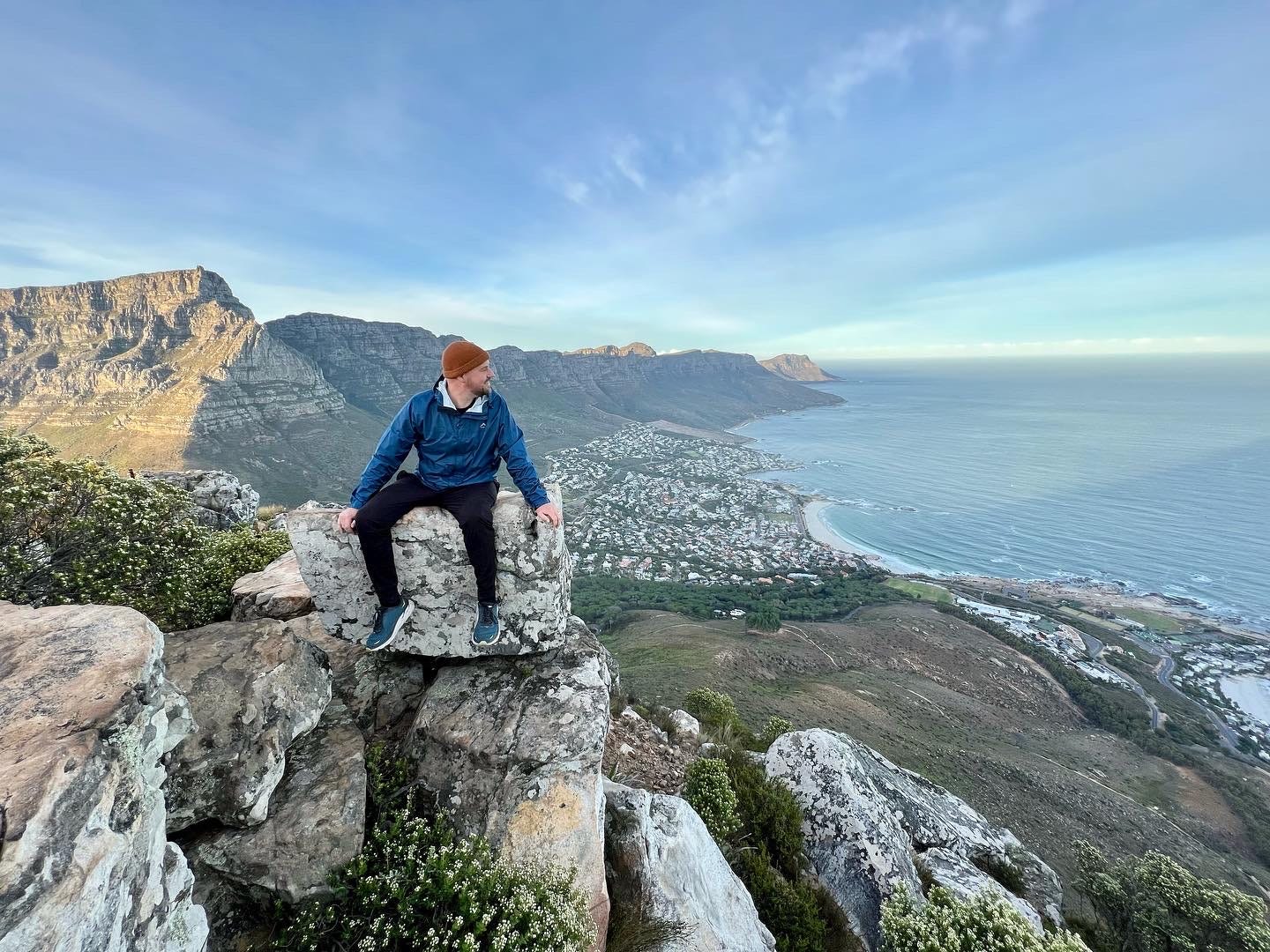
4 Cool Things
Extreme Pogo Stick-ing - I don’t ride pogo sticks, but if I did, I’d want to do it just like this.
Get On Your Feet - Gotta be one of the funniest scenes in TV history. Gotta. Watched this again the other night and I think I cried a little.
Africa, Of Course - Did we, during the few days we rented a car here in SA, blast Toto’s Africa? Yes. I’m not ashamed to say we did. The original is unbeatable, but we’ve really been digging this cover.
4 Mistakes I Made In Local Church Ministry - If you’re in ministry or serve/lead in church as a volunteer, this is an excellent essay. I could have written a good bit of this.
That’s the latest! Be sure to check out “The Joy and the Standing” and let’s make some Season 4 magic together.
Gratefully,
Justin
*Know someone who needs this newsletter in their life? Pass it on to them.
**Want to team up with me to tell the stories of the Old Testament in new ways?



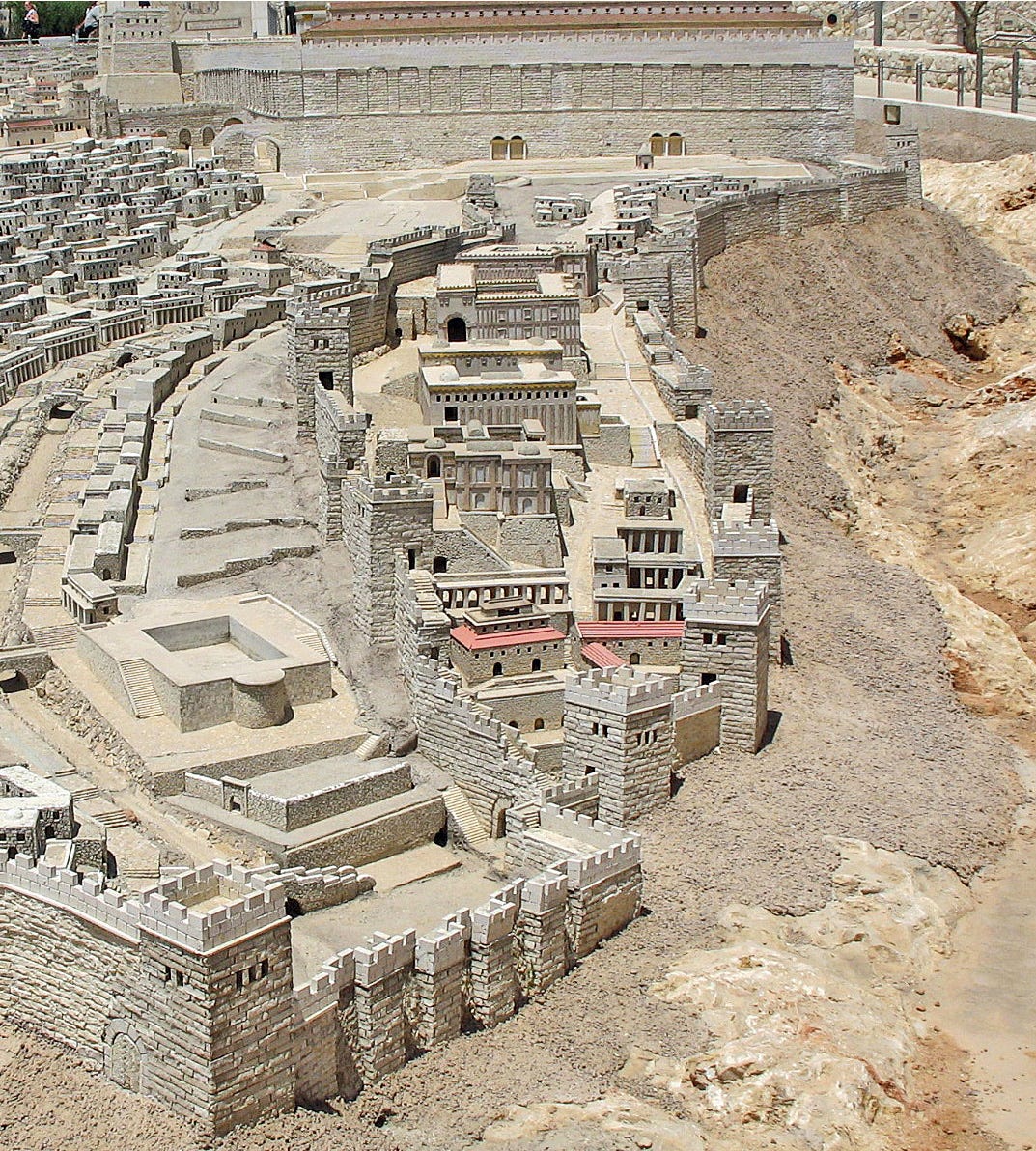
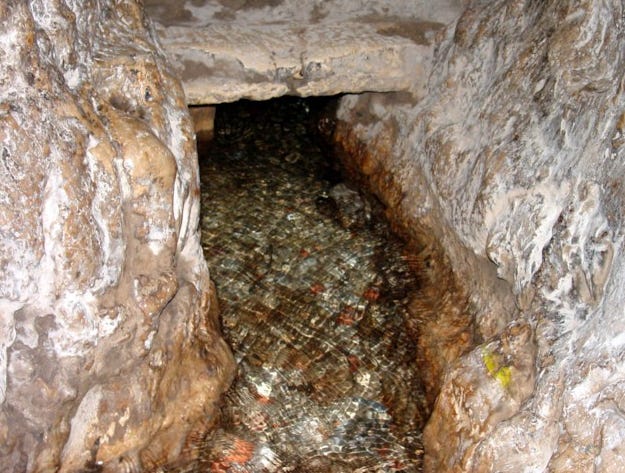


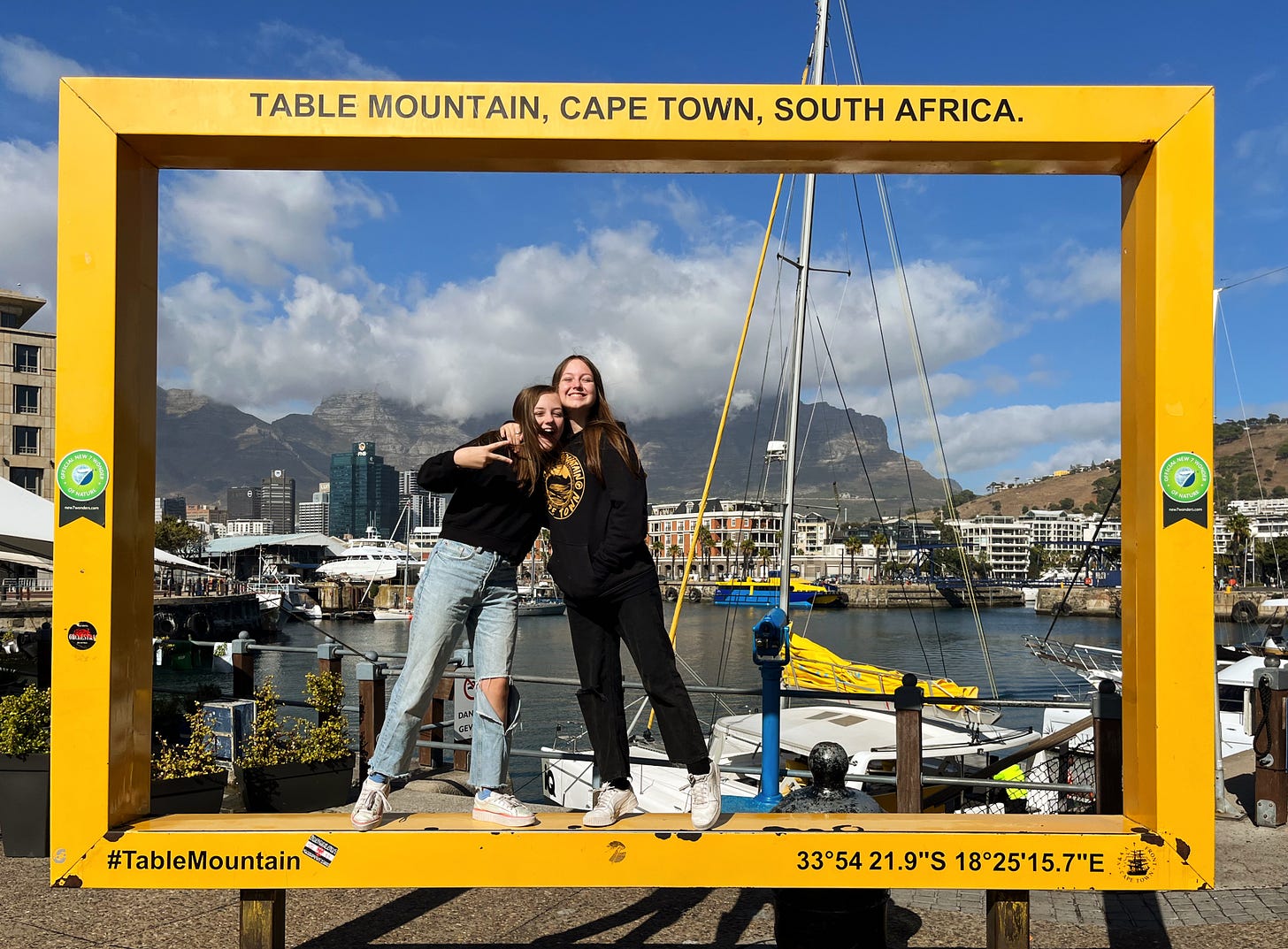
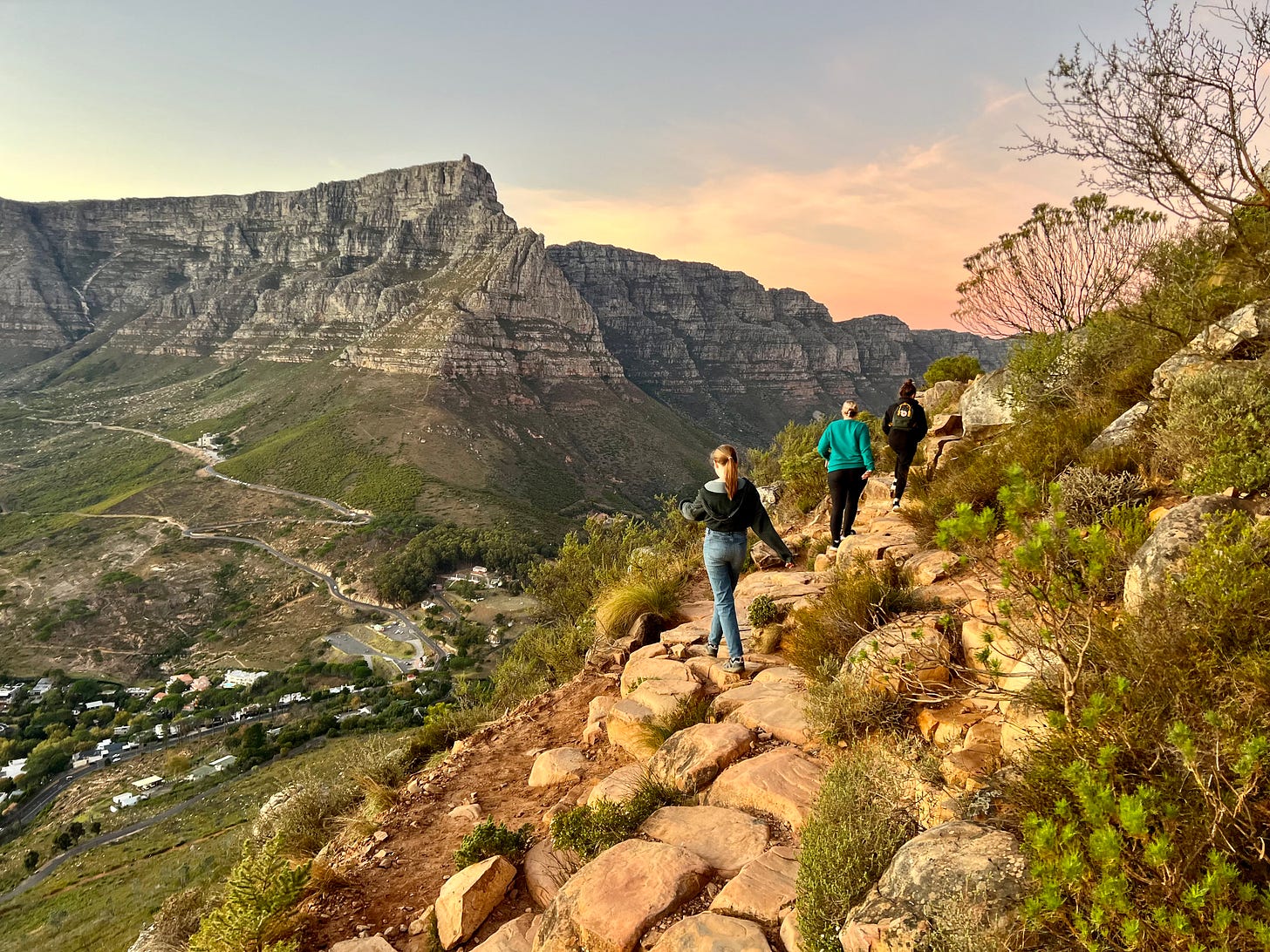
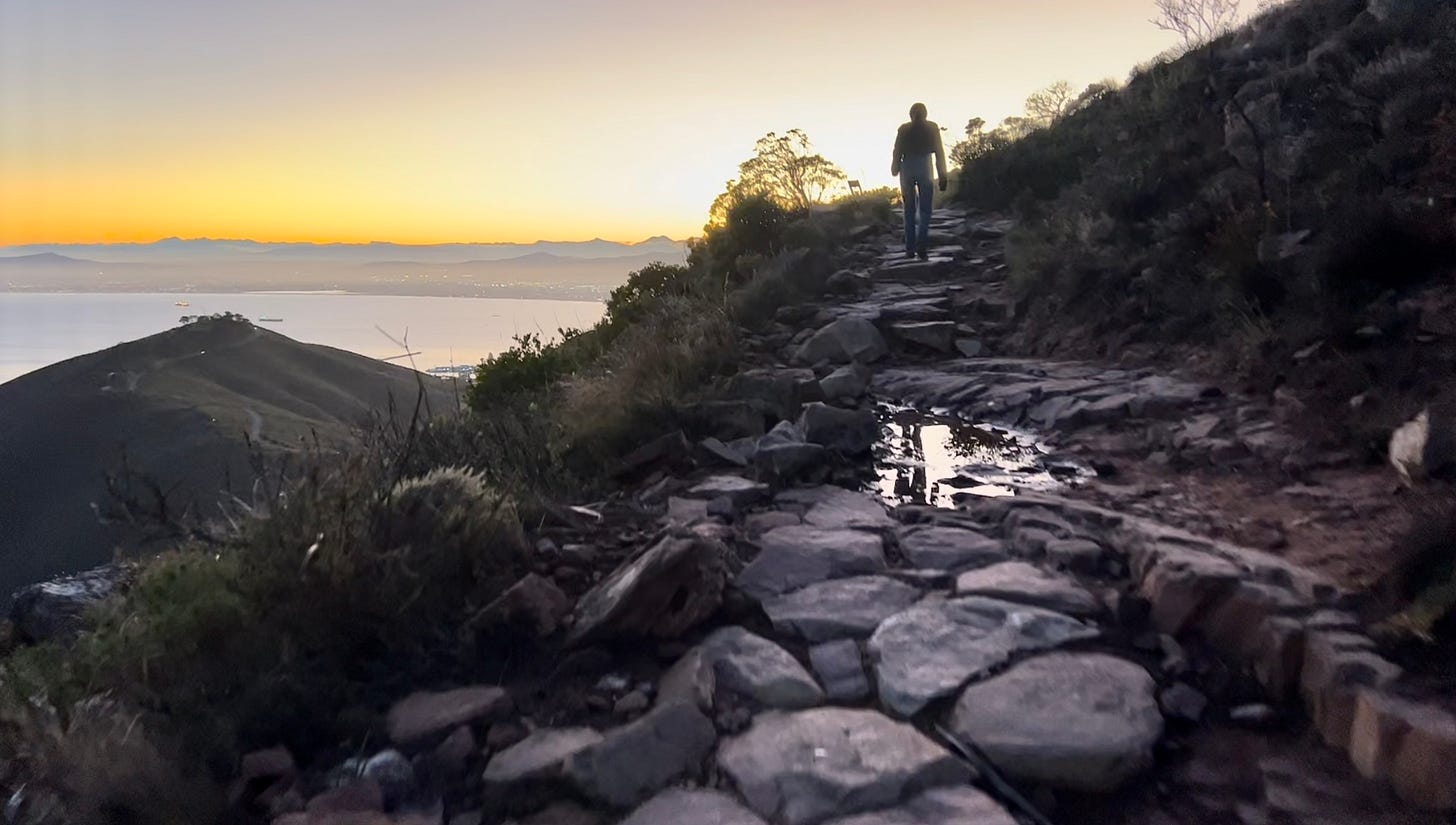
Justin for 80 plus years I did not study enough to learn the Truth. Seminaries do not know the difference in the Old Covenant , Pentateuch, and the Law, Decalogue. The Law tells what Sin is and was put inside the Ark and sprinkled with Christ blood—Daniel 9: 24 and Hebrews 12: 24 and by Aaron with animal blood on Day of atonement. The Old Covenant. Torah, Mosaic Law etc. was placed outside the Ark and Moses sprinkled people and it with animal blood. This told how to cover sin until Christ came. Why do do 99% of Christians keep Satan’s Sabbath (on the first day of the week) and refuse to keep God’s holy seven Day Sabbath? See who Christ said would inherit eternal life (be saved). Let Christ speak for Himself. Matt. 19:16-26.